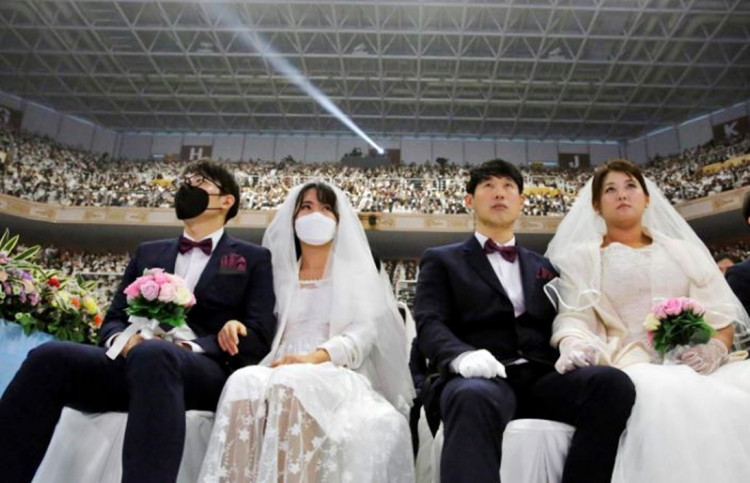The marriage crisis in South Korea escalated to new highs in 2020 with the number of marriages plunging to its lowest annual number ever and with more than half of both men and women saying they don't want to marry.
Statistics Korea said the number of new marriages fell 10.7% year-on-year to 214,000 in 2020. It pointed out this number is the lowest since 1970, when data began being kept regularly.
The annual percentage decrease is also the steepest since the 18.9% plunge recorded in 1971. This percentage is also the first double-digit decline in 23 years and represents the ninth straight year of where total annual marriages shrank.
Statistics Korea surmises the COVID-19 pandemic forced many couples to either cancel or delay their marriages. This also had the unfortunate effect of accelerating the steep drop in marriages.
The number of South Koreans marrying foreign spouses stood at only 15,000, down 35.1T% year-on-year. Marriages to foreigners accounted for 7.2% of of South Korea's total marriages in 2020.
To add to this problem, more South Koreans think marriage is no longer a necessity since they say they face immense difficulties finding jobs or buying homes.
Statistics Korea said only 51.2% of South Koreans think they must get married, down 14% from 2010. Data also shows the average age at which South Korean men marry was 33.2 years in 2020, up 1.4 years from a decade ago.
On the other hand, the median marrying age of first-time brides was 30.8 years, up 1.9 years over the same period.
Economists point out more marriages, and especially more married-parent families, are strongly associated with stronger economic growth. Marriage also contributes to more economic mobility, less child poverty and higher median family incomes. Marriage also enhances an adult's ability to parent.
A silver lining, if it can be called that, is a drop in the number of divorces. The number of divorces in South Korea came to 107,000 in 2020, down 3.9% compared to 2019. This was the first annual drop in three years. Couples married 20 years or longer accounted for the largest portion of those that divorced at 37.2%.
South Korea has a population of 51.5 million persons. Of this total, 25.7 million, or 49.8% are males, and 25.9 million (50.2%) are females.
In 2019, there were 100.5 males for every 100 females in South Korea, a gender ratio not projected to change significantly by 2060. Women, however, are more disadvantaged compared to men.
South Korea ranks as one the worst in terms of gender equality in the world. Its gender pay gap is the highest among the 37 countries comprising the Organization for Economic Cooperation and Development. The average monthly salary of South Korean men was over 35% higher than women in 2019.






